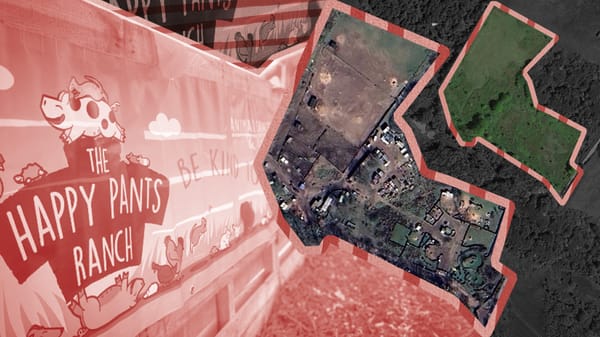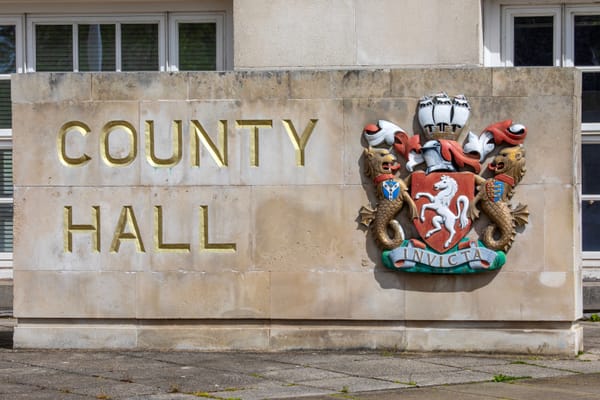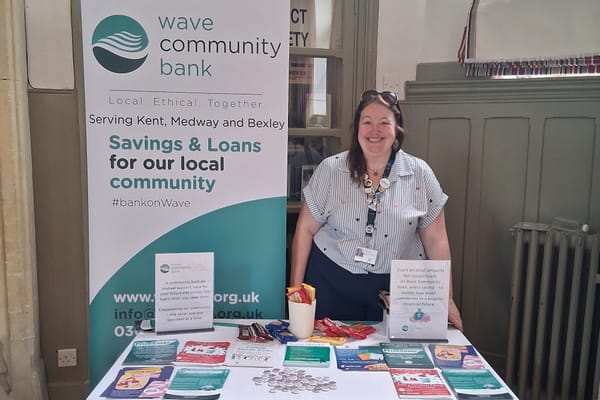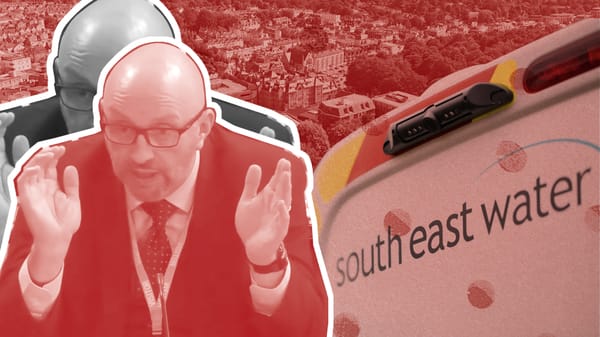“I really don’t like party tribalism”
What we asked Antony Hook, Lib Dem leader of the opposition at Kent County Council
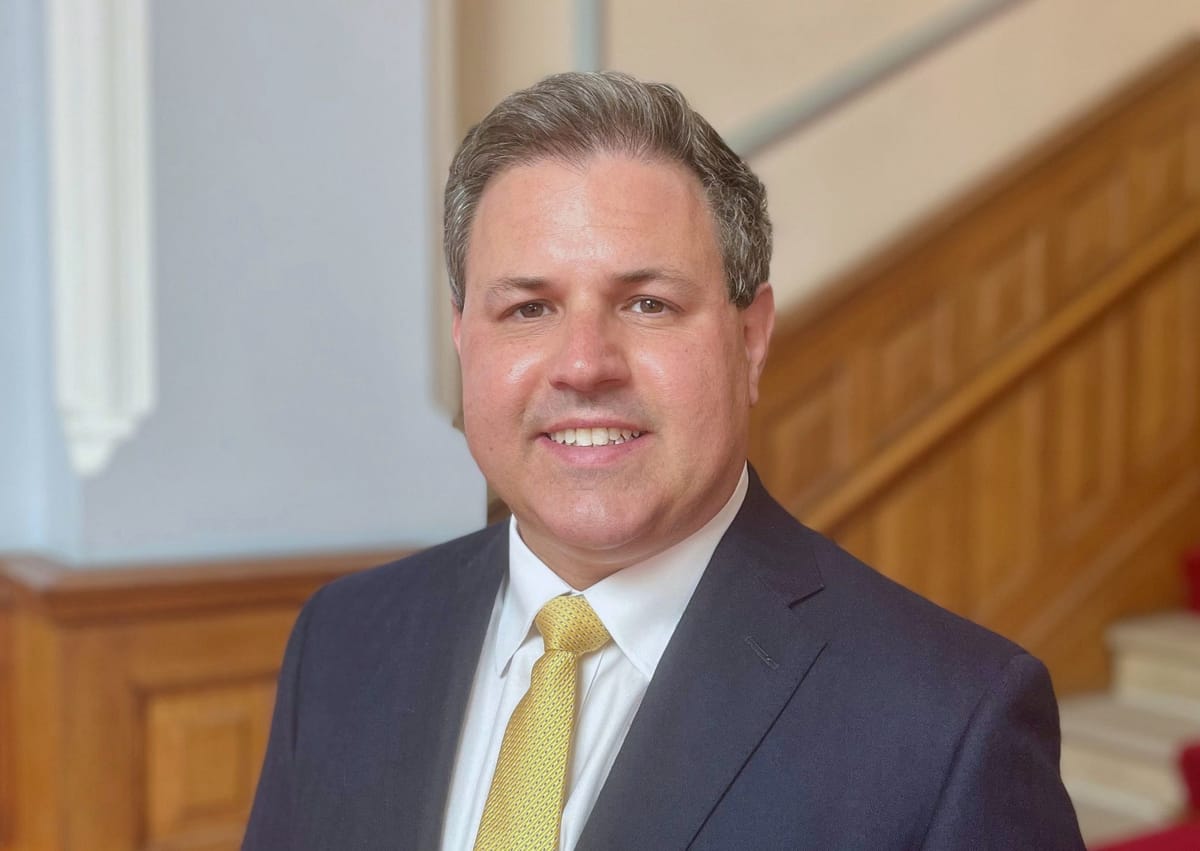
Antony Hook is the Liberal Democrat leader of the opposition at Kent County Council, a former MEP and a barrister. Steven met him in the County Hall canteen to talk about the results of this year’s county council elections, flags on lampposts, and how Brexit has affected Kent...
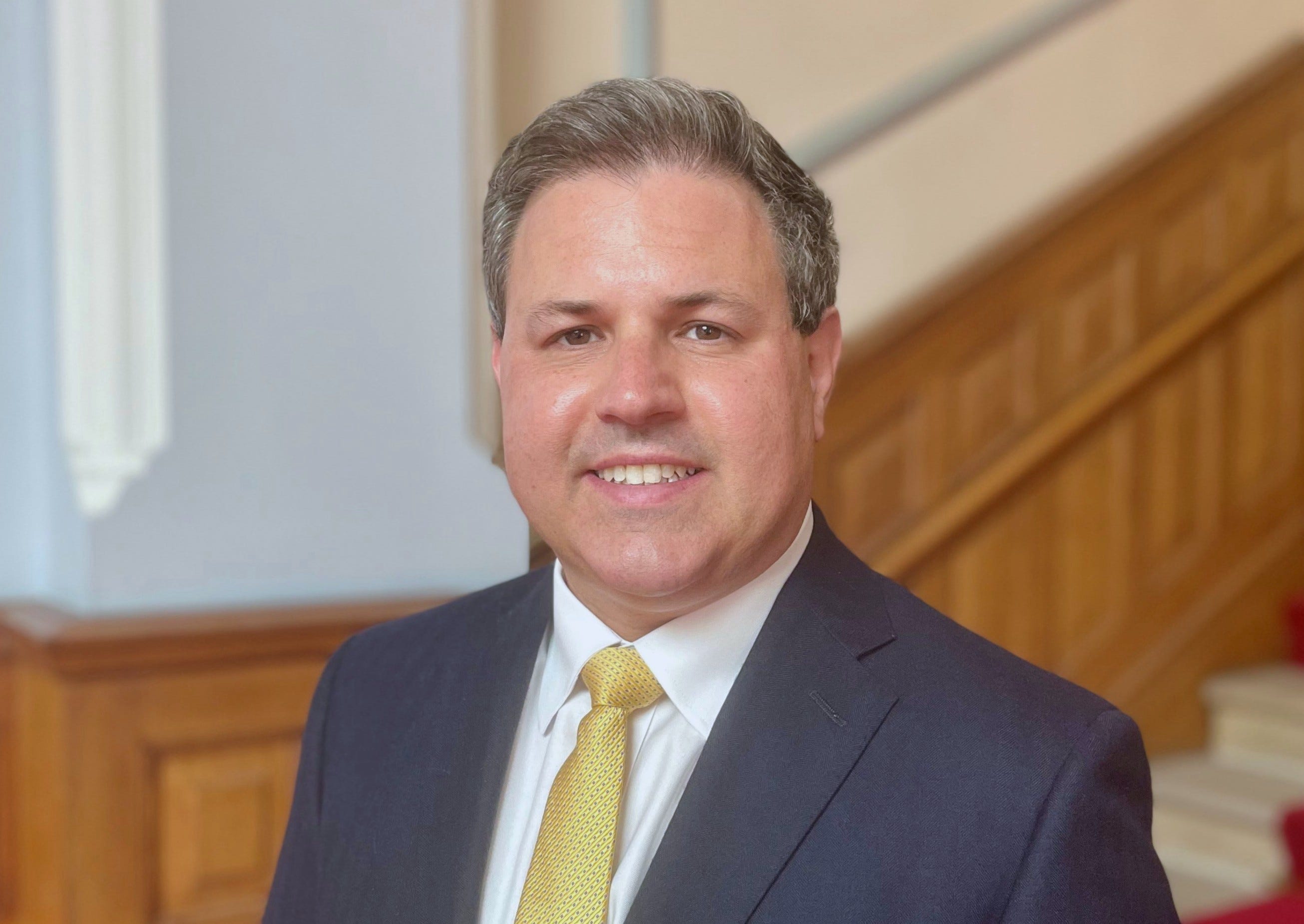
Which division are you the councillor for?
I'm councillor for Faversham, and the division is the whole town of Faversham. The town boundaries are just about the right size to be a council division.
Why are you the councillor for that division?
I've lived there for a long time. I absolutely love the town. I grew up in a different part of Kent, but moved there when I met my wife, and I absolutely love it. It's a small town and has a really positive, friendly community. But it's also got amazing services for a small market town. We've got two swimming pools run by a charity. We've got our own cinema. We've got a number of independent shops, and we've got schools that Ofsted say are all good. It's an amazing town.
Which party are you a member of?
I'm a Liberal Democrat and I'm the leader of the Liberal Democrat group here at KCC.
Have you ever been a member of any other party?
No, I've never been a member of any other party. I joined the Liberal Democrats when I was 18, when I was a student at university.
Why did you join the Liberal Democrats?
I had worked out in the course of my teenage years that I was a liberal. I believe in everyone having freedom and the maximum opportunities to live their life to the full and that means both freedom from and the government getting out of people's way, but also having an active government that evens up opportunity and make sure we have good quality education and health because freedom is meaningless if you don't have access to education and access to services like the health service.
I was personally very inspired by Paddy Ashdown. He brought honesty to politics, and honesty in the 90s was in short supply. The Conservative government, through the 90,s became rotten to the core. You could barely get through a week without another scandal, whether it was cash for questions, sex scandals or infighting in the government or monetary scandals. Back then, people forget our whole political system was much less transparent. We had no Freedom of Information Act back then, and we also had no internet and the internet, I realise, is a double-edged sword, but people didn't have access to information. All sorts of wrongdoing was got away with or was got away with for longer, before it was eventually uncovered. We had no Nolan Principles, the principles of standards in public life, such as objectivity and selflessness and honesty, which anyone who holds public office is expected to obey those principles. The Nolan Principles hadn't been devised until the late 1990s. In fact, it was the scandals of the Conservative government in the 90s that led to Lord Nolan's committee being created.
I was very inspired by Paddy, and particularly, an issue in the 90s was the Bosnian Civil War. We had had the end of the Cold War, and there was a tremendous sense of optimism in the world. I know my father's generation literally had drills at school of what you do if there's a nuclear attack. In that whole period from the 50s through to the 90s, people seriously feared that nuclear war was something that was going to happen to us eventually. I remember watching on television as a boy, when the Berlin Wall fell down, there was a real sense of positivity that even as a child, I could appreciate that things were going to get better. Then when the former Yugoslav Civil War broke out. That was a challenge because we saw genocide at places like Srebrenica. There were stories of towns and villages where people lived side by side for decades and suddenly were being killed by militia from one side or the other. That was really shocking, and Paddy was one of the few leading figures in British politics who said, “This is unacceptable and the international community should intervene to stop it.” The international community eventually did, but it took several years, and outrages like Srebrenica happened, and lots of people were victims of genocide in the meantime.
I was very inspired by that and also later by Charles Kennedy, who also brought a freshness and a sense of honesty and truth-telling to politics. But also, the Liberal Democrats to me embodied a calm and rational approach, rather than an emotive prejudice.
How long have you been the leader of the Liberal Democrat group?
I've been the leader of the group for four years now, in the previous council and in this one. In the previous council, we were opposing the Conservatives, and there were six of us. We had in the previous county council three opposition groups, Labour, Liberal Democrat, and Green, who were all roughly the same size. We all had between four and seven members. Then in this year's county council elections, we doubled our number of seats, went from six to twelve, and we became the largest opposition group and hence why I'm designated as leader of the opposition.
Is there anything particular about yourself that you the leader of the group?
We had an election within the group, and I was elected.
Why did you stand and why do feel the people voted for you?
I put myself forward because I thought I've got skills to be an effective leader. Part of my role is to coordinate members of the group, making sure that we're covering the range of activities and all the different committees and policy areas, but try and bring that together and have a strategic focus.
In the previous council, did you have a working relationship with the leader of the council at that time?
Yeah, I got on personally quite well with Roger Gough. I have a lot of respect for Roger Gough. I disagreed with many of the decisions they were making, but there was always a mutual respect and also, I thought Roger was a good listener, and I thought he was usually interested in what opposition groups said, and sometimes changed policy or amended policy as a result of when good points are made. I think he had a very genuine desire to do the best by the people of Kent and had a long-term view. He'd been on the council for a very long time.
I thought Roger always had a very long-term view, and that's absolutely essential because the council's been here for 135 years. Local government will continue to be here for decades to come. The form of local government has changed. It changed in a big way in the 1970s, when our current district councils were created from smaller units. It's probably going to change again in the next couple of years, but there will be local government. The decisions we make will have long-term consequences. Also, the scale of it, because we're making decisions for the whole of Kent. That's about 1.8 million people, the largest local authority in the country. I thought Roger always listened, and I thought Roger could sometimes put party tribalism aside, which I think is really important. I really don't like party tribalism. I don't think I ever will be one of those people who says my party's always right, and all the other parties are idiots. I've never felt that way, and I find that approach very destructive in politics nationally and locally.
Reform came in and replaced the Conservatives where the Conservatives hadn’t offered very good political leadership.
As you mentioned, in the last local elections, your group doubled in size, there were also other dramatic events. Roger lost his seat, the Conservatives were practically wiped out, and Reform took control. What's your explanation for that change?
It's interesting. I was surprised by the scale of the Conservative defeat. I thought the Conservative group would still be here in a significant number, and I thought the council would probably have no overall control. I was clearly wrong about that. What I know is, because people ask me how did you beat Reform, and this is true both in Faversham and in all the places where the Liberal Democrats were elected. We tend to be in places with a strong, vibrant sense of community. It doesn't just exist by itself. That comes from political leadership. We have in Faversham a good team of Liberal Democrat councillors on the town council, the borough council, and the county council who are working hard all year round, in touch with people all year round, organising lots of events and quite apart from councils, we have a good sense of community where there's lots of clubs, societies. It's a very active community. I think that across the county, Reform did particularly well, and maybe there isn't the same quality of political leadership in place, or the same community infrastructure had not been developed. I think it was, in some ways, political choices coming home to roost, that Reform came in and replaced the Conservatives where the Conservatives hadn't offered very good political leadership.
I'll give you an example of that on quite a controversial issue. We have, in Faversham, a place called the Acacia Court. It's a reception centre for refugee children who arrive in the country with no adults. The children who are 16 to 17, assessed by KCC social workers who are very experienced, good at their job as being that age, they go there for up to two weeks, sometimes less, just as an initial reception, a safe place for them to be before they go into the national transfer scheme, where they may go into care anywhere in the country. It's been open a year. When the opening of it was announced, there was a little bit of concern and quite a lot of false information going around. The decision I took was to go on the front foot and tell people through social media, but also through face-to-face conversations, the facts and that I didn't oppose it, and it doesn't pose a danger to the community and also point out that it's been opened on a site that's been derelict for ten years. This derelict site had become a magnet for drug-taking anti-social behaviour, or drug-dealing anti-social behaviour. This was actually a really good thing for the community. It was going to be refurbished at the UK government's expense. When the UK government don't need it anymore, there will be a lovely, refreshed building that could be used.
I found, by being honest, people were receptive to that and were reassured and have continued to elect me and my Liberal Democrat colleagues since. I think there are other parts of Kent where, to be blunt, councillors from other parties would not have shown the same leadership. There was a degree of courage in it because there was plenty of abuse. I think we made the decision not to be cowed by that, but just to be honest and tell people the truth. Last autumn, the manager of Acacia Court mentioned to me that they were short of fruit and vegetables to serve. I put a message out on Facebook to tell the community. Lots of people have allotments, lots of us grow fruit and veg in our gardens. I've got two big apple trees. And people took apples, cherries, potatoes up there. I related this story in a KCC meeting, and a couple of members from other parties said to me, “In our community, that wouldn't have happened. If I put up a Facebook post saying please donate food and vegetables to the refugee children’s home, I would have got abuse,” which is really sad to hear. But I think it's about the quality of political leadership over time. I think if a politician, taking immigration as an example, only talks about refugees in a negative way, their community will feel negatively about refugees. If you're positive about that and actually say, these children don't pose any threat, and we should be really proud of looking after children, then people respond very positively, and the proof of that is fabulous.
I would say, and that's bringing it back to your question to me, which was about the election and the places where the Liberal Democrats beat Reform, we had a strong track record of community politics. I don't know, but I suspect that the places where the Conservatives lost in such a big number is because they didn't have that track record of community politics. I think they were probably very complacent for many years.
The current leadership is very disappointing. There’s a real lack of leadership.
Talking about quality leadership, what are your views on the current leadership of Kent County Council?

